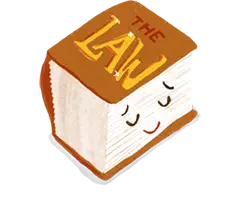Topic
Renting
This page contains different parts of laws about Renting, within the topic of Housing and property.

Important laws about Renting
Real Estate Agents Act 2008
What words mean in the Real Estate Agents Act 2008
4: Interpretation
Real Estate Agents Act 2008
A group to deal with real estate agent issues
100: Real Estate Agents Disciplinary Tribunal established
Real Estate Agents Act 2008
Rules About Keeping Some Information Secret in Real Estate Cases
108: Restrictions on publication
Real Estate Agents Act 2008
What evidence can be used to help make a decision at a Tribunal hearing?
109: Evidence
Real Estate Agents Act 2008
What the Registrar must do if a court makes a special order about a real estate agent's licence
118: Duties of Registrar if interim order made
Real Estate Agents Act 2008
The Tribunal can make a decision without a meeting, after asking for your thoughts.
107A: Hearing on papers
Telecommunications Act 2001
Body corporate must give unit owners written reasons for objecting to installations.
155W: Requirement for governing bodies to give unit owners reasons for objections
Local Government (Rating) Act 2002
Telling the council when a lease or licence ends or changes
32: Notification of surrender or termination of lease or licence
Sentencing Act 2002
If your rented car is taken, you can ask to get it back if it's not being destroyed.
140: Lessor may apply to Registrar
Sentencing Act 2002
What happens to the money if a leased car is sold and the lessor didn't apply to the court first?
140A: What happens if lessor does not apply to Registrar before motor vehicle sold or disposed of
Immigration Act 2009
Rules to Protect People Who Flee Their Country for Safety
Schedule 1: Convention Relating to the Status of Refugees
Oranga Tamariki Act 1989
Help from Oranga Tamariki when you're becoming independent
386B: Provision of advice and assistance by chief executive
More laws about Renting
About this project
What is this project?
This project is an experiment to take difficult language, and make it easier to read and understand for everyone.
How do we do this?
What's our process for taking the law and turning it into plain language?
Why is the law written like it is?
Laws are often hard to read. They use a lot of words and language we don't usually use when we talk.
Should we use AI for this?
What are the good and bad sides of using AI?
Is this information the actual law?
We hope that this information will help people understand New Zealand laws. But we think that it's important you talk to someone who understands the law well if you have questions or are worried about something.
You can talk to Community Law or Citizen's Advice Bureau about your rights.
Remember that AI can make mistakes, and just reading the law isn't enough to understand how it could be used in court.
You can talk to Community Law or Citizen's Advice Bureau about your rights.
Remember that AI can make mistakes, and just reading the law isn't enough to understand how it could be used in court.




